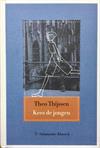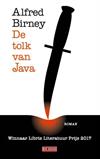
The Lathe of Heaven
Registered by VariC of Prenzlauer Berg, Berlin Germany on 12/13/2009
 This Book is Currently in the Wild!
This Book is Currently in the Wild!
 This Book is Currently in the Wild!
This Book is Currently in the Wild!
3 journalers for this copy...
George Orr dreams. And when he dreams particularly vividly, his dreams become reality. Or, more accurately, reality becomes his dreams, changing as far into the past as needed to make his dream possible. And now he is forced to undergo sessions with Dr. Haber who wants to use his “gift” to change the world into something better.
Morally, this is a very complex book, and it raises a number of questions without really answering any. The intent seems to be to use a science fictional concept to distill the moral questions to their essences, permitting a purer approach than would be needed if all kinds of real-world considerations had to be taken into account. This is common with Le Guin's work: if you want it to, it makes you think for yourself and there aren't really any “right” thoughts to have, but you can also read it as straight entertainment and there's nothing wrong with that either.
To me, one central question was about the authority that Dr. Haber had to do all the things he did. He suddenly had the ability to change the world arbitrarily thrust into his lap, and not for one moment does he stop to think that the ability to do something does not automatically grant permission to do it. His actions are perhaps comparable to that of world leaders regarding their effects, but his power is more absolute, with more immediate effects, and there are no checks on his use of that power. Yet, it seems that the world does get better as Haber uses the power more, though he makes some missteps due to not understanding George perfectly. Do the ends justify the means? And would any of us perform any differently? Especially as Haber knows any changes will always preserve him and his situation with George, so unlike with political leaders, Haber has no worries of losing the power either.
A more science-fictional moral question concerns changing the past. Is it morally any different to arrange for someone to never have existed from actually killing them? Haber definitely seems to think so, but George is at least leaning towards the opposite opinion. But does answering that question negatively require a belief in predestination? All of our choices, constantly, select a future world where some people that might have been born never are. Is it any different if we can make that choice in the past instead?
Morally, this is a very complex book, and it raises a number of questions without really answering any. The intent seems to be to use a science fictional concept to distill the moral questions to their essences, permitting a purer approach than would be needed if all kinds of real-world considerations had to be taken into account. This is common with Le Guin's work: if you want it to, it makes you think for yourself and there aren't really any “right” thoughts to have, but you can also read it as straight entertainment and there's nothing wrong with that either.
To me, one central question was about the authority that Dr. Haber had to do all the things he did. He suddenly had the ability to change the world arbitrarily thrust into his lap, and not for one moment does he stop to think that the ability to do something does not automatically grant permission to do it. His actions are perhaps comparable to that of world leaders regarding their effects, but his power is more absolute, with more immediate effects, and there are no checks on his use of that power. Yet, it seems that the world does get better as Haber uses the power more, though he makes some missteps due to not understanding George perfectly. Do the ends justify the means? And would any of us perform any differently? Especially as Haber knows any changes will always preserve him and his situation with George, so unlike with political leaders, Haber has no worries of losing the power either.
A more science-fictional moral question concerns changing the past. Is it morally any different to arrange for someone to never have existed from actually killing them? Haber definitely seems to think so, but George is at least leaning towards the opposite opinion. But does answering that question negatively require a belief in predestination? All of our choices, constantly, select a future world where some people that might have been born never are. Is it any different if we can make that choice in the past instead?
Journal Entry 2 by  Appelsiini
Appelsiini at Valkeakoski, Pirkanmaa / Birkaland Finland on Thursday, September 23, 2010
at Valkeakoski, Pirkanmaa / Birkaland Finland on Thursday, September 23, 2010
 Appelsiini
Appelsiini at Valkeakoski, Pirkanmaa / Birkaland Finland on Thursday, September 23, 2010
at Valkeakoski, Pirkanmaa / Birkaland Finland on Thursday, September 23, 2010
What have I done?!? I have never been interested in sci-fi and my husband laughed when he saw what I got... This was picked from a bookbox by the very 1st sentence... Well, as we say in Finland: rohkea rokan syö!
So finally I read this one. My husband read it a long time ago and said it's a true classic. I however have not been interested in sci-fi, so this was all new to me. The story was good, quite interesting. I'm glad I read it.
Journal Entry 4 by  Appelsiini
Appelsiini at Pukstaavi, suomalaisen kirjan museo in Sastamala, Pirkanmaa / Birkaland Finland on Saturday, October 3, 2020
at Pukstaavi, suomalaisen kirjan museo in Sastamala, Pirkanmaa / Birkaland Finland on Saturday, October 3, 2020
 Appelsiini
Appelsiini at Pukstaavi, suomalaisen kirjan museo in Sastamala, Pirkanmaa / Birkaland Finland on Saturday, October 3, 2020
at Pukstaavi, suomalaisen kirjan museo in Sastamala, Pirkanmaa / Birkaland Finland on Saturday, October 3, 2020
Released 3 yrs ago (10/3/2020 UTC) at Pukstaavi, suomalaisen kirjan museo in Sastamala, Pirkanmaa / Birkaland Finland
WILD RELEASE NOTES:
I took this to our meet-up and will leave it to the bookshelf.
Journal Entry 5 by krizista at Sastamala, Pirkanmaa / Birkaland Finland on Wednesday, October 7, 2020
I found this from our local book museum Pukstaavi
Journal Entry 6 by krizista at Matkakeskus / Travel Centre in Jyväskylä, Keski-Suomi / Mellersta Finland Finland on Tuesday, March 1, 2022
Released 2 yrs ago (3/4/2022 UTC) at Matkakeskus / Travel Centre in Jyväskylä, Keski-Suomi / Mellersta Finland Finland
WILD RELEASE NOTES:
Jätän matkakeskukseen seuraavalle lukijalle

















